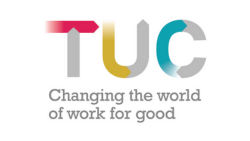Coalition of Charities and Academics calls for overhaul of UK parental leave system in support of Government review
Published: 6 May 2025

A group of charities, academics and other rights organisations and campaign groups have come together to call for a comprehensive review of parental leave, including the maternity, paternity and shared parental leave and pay framework.
Co-ordinated by Working Families, the UKs national charity for working parents, the signatories are offering expertise and evidence to support the Government’s promised review. It comes as the Working Families Index research found that 4 in 10 mothers didn’t feel they took the time they need with their new baby, 7 in 10 fathers who took less than two weeks leave were worried about money, and 21% of fathers and 14% of mothers were not entitled to any parental leave.
The open letter, signed by 18 organisations, including the TUC, Save the Children, Pregnant then Screwed and The Dad Shift, endorses the review promised by the government, but urges it to broaden the scope to ensure real change, including duration, statutory pay levels, eligibility criteria, and the capacity of employers to consider the needs of kinship carers and adoptive parents.
The letter sets out nine key principles for that should underpin future parental leave reform.
- Each parent should have an individual right to time off and pay, reserved just for them, which has been shown in other countries to reduce gender inequality.
- Maternity leave is important because mothers need to recover from childbirth and establish breastfeeding. Appropriate support for breastfeeding from employers should also be required.
- Leave for fathers or partners to care for their infant is important to lay the ground for fathers’ role in caring for children, and should be incentivised.
- The system must be simple and easy to understand for both parents and employers while enabling flexibility for parents, including some time off together if that’s what they want.
- Time off and pay should be available to all parents (including those classified as ‘workers’ and ‘self-employed’) as an individual right from day one.
- Statutory leave and pay levels should be substantially increased and kept in line with the cost of living, to ensure that taking leave is genuinely affordable for all families.
- The system should ensure that parents have the right to return to the same job after taking leave, and are protected by law from losing their job during leave or upon return due to discrimination.
- Future reform should not come at the expense of existing parental rights and entitlements.
- Parental leave and pay policies should work alongside a part-time and flexible by default UK labour market; a more affordable, available childcare system that ensures work pays from the day parents return to work; and a health system that recognises both parents’ unique roles and impacts.
Reform must also be rooted in the belief that investing in children’s care and parental involvement benefits society, business and the wider economy.
The signatories stress that reform cannot happen in isolation and must align with wider changes to make childcare more affordable, flexible working more accessible, and health support for new families more inclusive. They urge the government to commit to a programme of phased reform that enables changes to be implemented over time to support families and benefit wider society.
Jane van Zyl, Chief Executive Working Families, said:
A rethink of the statutory offering to new parents is long overdue to enable mothers and fathers to manage the transition once a baby arrives. Shifting attitudes mean fathers want to play an active role and if we are to achieve gender equality, fathers need the chance to be involved from the get-go. Sadly, statutory rights have struggled to keep up with this change in attitudes. Reform is urgently needed so that families, particularly those without a financial safety net, aren’t forced back to work prematurely and have equal opportunities to spend time with their child in the first, crucial year.
Meghan Meek-O’Connor, child poverty policy lead at Save the Children UK, said:
We must review parental leave in the UK, to unlock its potential to function as a critical tool in the fight to reduce child poverty. Reforms should at the very least include an increase to statutory leave and pay levels in line with the cost of living, otherwise leave isn’t truly affordable for all families, on all incomes.
We’d also like to see these rights backed by a social security system that keeps pace with inflation or average earnings, whichever of the two is higher, and childcare that’s affordable and available to all. With all of these measures in place, children could benefit from a secure home environment in their earliest years and a reduction in poverty levels.
A review of existing parental pay and leave represents a once-in-a-lifetime opportunity to make generational change. Conducting a thorough review will mean reforms ensure parental leave works for working families, particularly those on a low-income or who are self-employed who need a little extra support, to give families the best chance of success from the off and to promote gender equality.
The asks in the letter and the principles are supported by the following organisations
 |  |  |  |  |
 |  |  |  |  |
 |  |  |  |  |
 |  |  |  |  |
 |  |
Academic signatories
Prof Emma Banister, Work and Equalities Institute, University of Manchester
Dr Joanna Clifton-Sprigg, University of Bath | GW4 Maternity Leave Network Lead
Prof Heejung Chung, Professor of Work and Employment | Director of the King’s Global Institute for Women’s Leadership
Dr Sarah Forbes, University of York.
Dr Mark Gatto, Assistant Professor in Critical Organisation Studies, Northumbria University
Dr Ernestine Gheyoh Ndzi, York Business School
Dr Jasmine Kelland, Associate Professor in HRM, University of Plymouth
Prof Susan Milner, Associate Professor, University of Bath
Dr Helen Norman, Associate Professor, University of Leeds
Raj Patel MBE, University of Essex
Dr Ian Roper, University of Essex
Dr Bianca Stumbitz, Transition to Parenthood in UK SMEs (Principal Investigator), Middlesex University
Prof Anna Tarrant, Professor of Sociology, University of Lincoln
Prof Tracey Warren, Nottingham University Business School
Dr Krystal Wilkinson, Associate Professor of Human Resource Management, Manchester Metropolitan University
Dr Afshin Zilanawala, Associate Professor of Demography, University of Southampton.